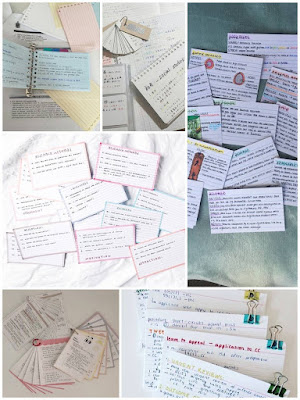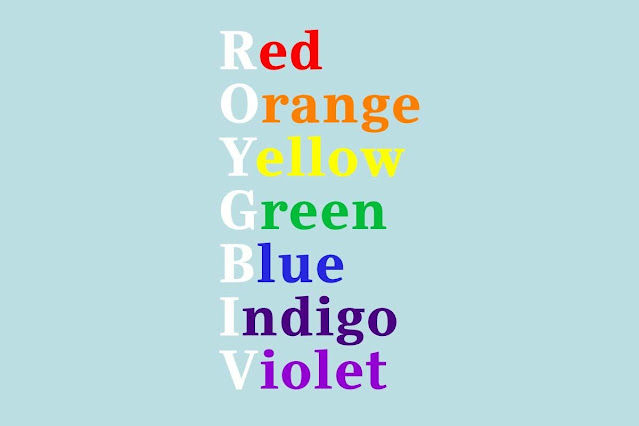Vocabulous
Your Fabulous Vocabulary learning partner
Vocabulary is a fundamental foundation of human daily activities as it plays a key role in Speaking, Writing, Listening, and Reading. No matter how advanced your grammar is, you won't get very far with your language abilities if you don't know how to express yourself with a range of terms.
Everyone has their own techniques to help them remember or learn new words effectively. However, you also have to find what might work for you the most, so you can expand your vocabulary range.
Once you are initiated in your career, your professional progress will definitely depend on your work skills, and your ability to use words to express yourself clearly and convincingly. Practice makes perfect! So it's time to boost your range of vocabulary!
"One forgets words as one forgets names. One’s vocabulary needs constant fertilizing or it will die" -Evenlyn Waugh, an English writer
1. Use index card or flash card
Whenever you discover new words , you will want to hold onto them. Especially if you are learning a language, studying new words with flashcards is the most easy and quick method. All you need are: some index cards or some pieces of papers and a dictionary. On the front of the paper, you can write the vocabulary that you want to learn. And on the back, you can write the definition, synonyms, and pronunciations. You can bring those cards and try to explain those words in your own words when you have time, as well as try to use those words in a sentence.
Here are a few useful flashcards applications:
- Quizlet: allows users to create their own cards, share with friends.
- Cram: allows users to search for premade flashcards or create their own.
- gFlash: integrates with Google so that users can create or install flashcards on an extensive list of subjects and languages
- VocabAhead: an explanation over 1,000 difficult words
with vocabulary videos and flashcards.
- StudyBlue: has a library of over 350 million pieces of
different subjects and countless languages and you can also create your own cards too.
2. Create a Mnemonics
Mnemonics is also one of the popular ways to memorize vocabulary, which are funny phrases or stories or shortcuts that can help you remember more complicated words and strengthen your creativity to make a connection between the word and its meaning. For instance, you can remember some mathematical operations by creating mnemonics. PEMDAS: Parentheses, Exponents, Multiply, Divide, Add, Subtract. You can also easily remember what you are going to buy when you have to go to the grocery shop. By using mnemonics technique, you can create your own word SHOP, where S is Sausages, Ham, Oranges, Papaya.
3. Gamification
Gamification of learning is an educational procedure that seeks to motivate and inspire students by using video game design and game elements in learning environments. The biggest goal is to increase students’ productivity levels.
There are some gamification learning examples:
- Kahoot!: is an educational game-based learning platform where users have to create their games
and quizzes or questions. Once students have aced all flashcards of new words, they
can move on to Practice mode where they play a kahoot at their own pace until they've answered all questions correctly.
- Duolingo: is also an educational platform that allows users to learn languages that they want by
practicing everyday and playing or doing quizzes.
- Quizlet: is one of the popular platforms that many students like to use. Users can produce their
own simple and effective quizzes or flashcards on different subjects.
4. Learning Environment
You do not have to go abroad to study new languages or improve your language skill, instead, you can create your own inspiring and study friendly environment. You can just go outside to buy magazines, newspapers, and books in the language that you want to learn. Moreover, you can also find any movies or songs that you find interesting. You are more likely to remember new words if they are used in a context (movies, TV shows, books, podcasts, songs) that you are passionate about. For an example, when you are watching movies in a language that you want to improve, try watching it with subtitles. While watching, if you find any words or phrases that you don’t understand, just grab a piece of paper or a book, write them down and look it up after you’ve finished watching.
How range of vocabulary affect self-esteem?
People's perspectives on the world, how they connect with others, and how they express their creativity can all be influenced by their language. Self-esteem, on the other hand, can be increased by the ability to communicate clearly, aggressively, and intellectually. People's self-esteem rises dramatically when they feel confident in expressing their thoughts. Having a diverse vocabulary may also be quite beneficial in revealing public speaking abilities and making people feel good about themselves. As a result, vocabulary is crucial in human life.







0 Comments:
Post a Comment
Subscribe to Post Comments [Atom]
<< Home